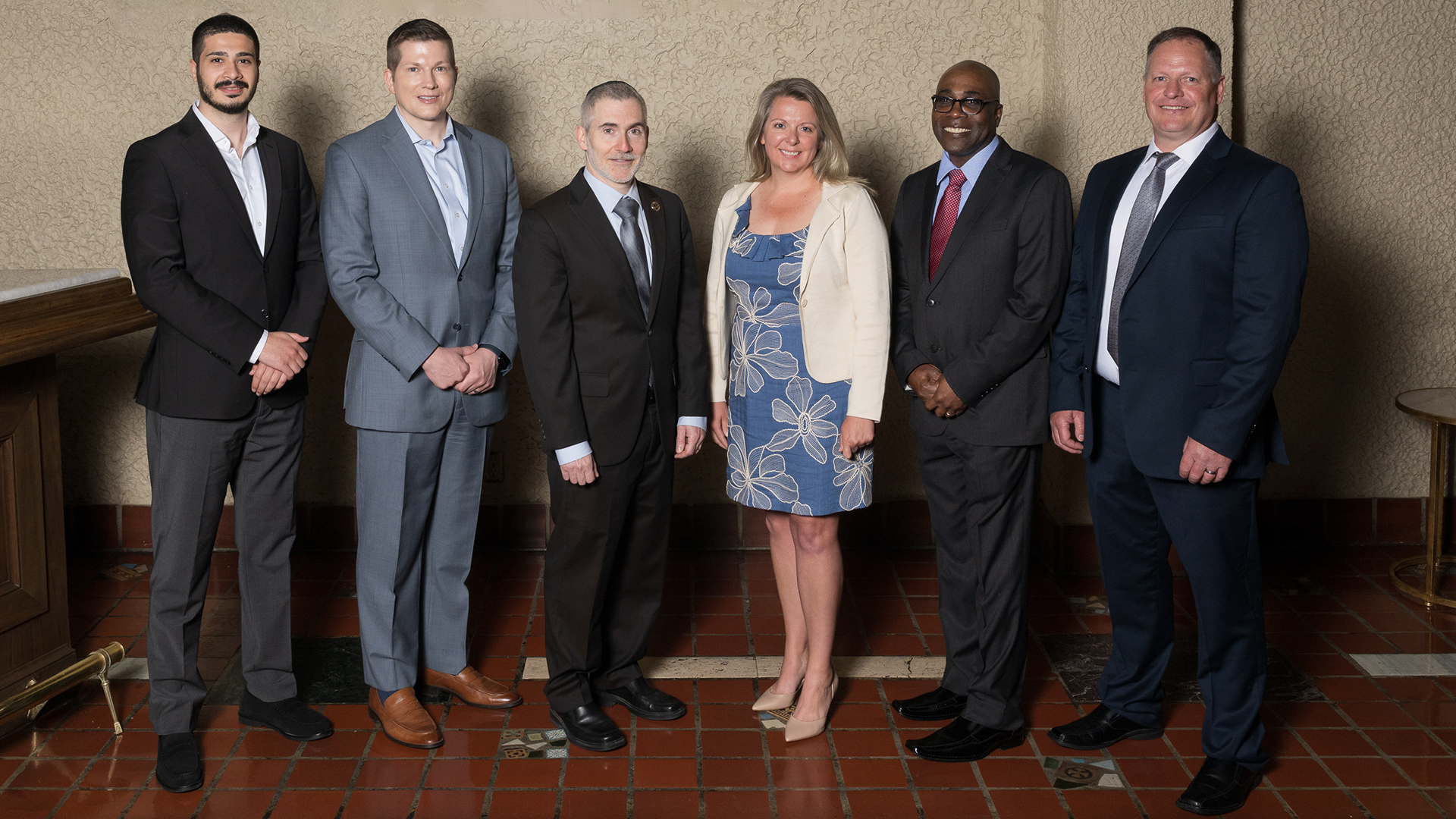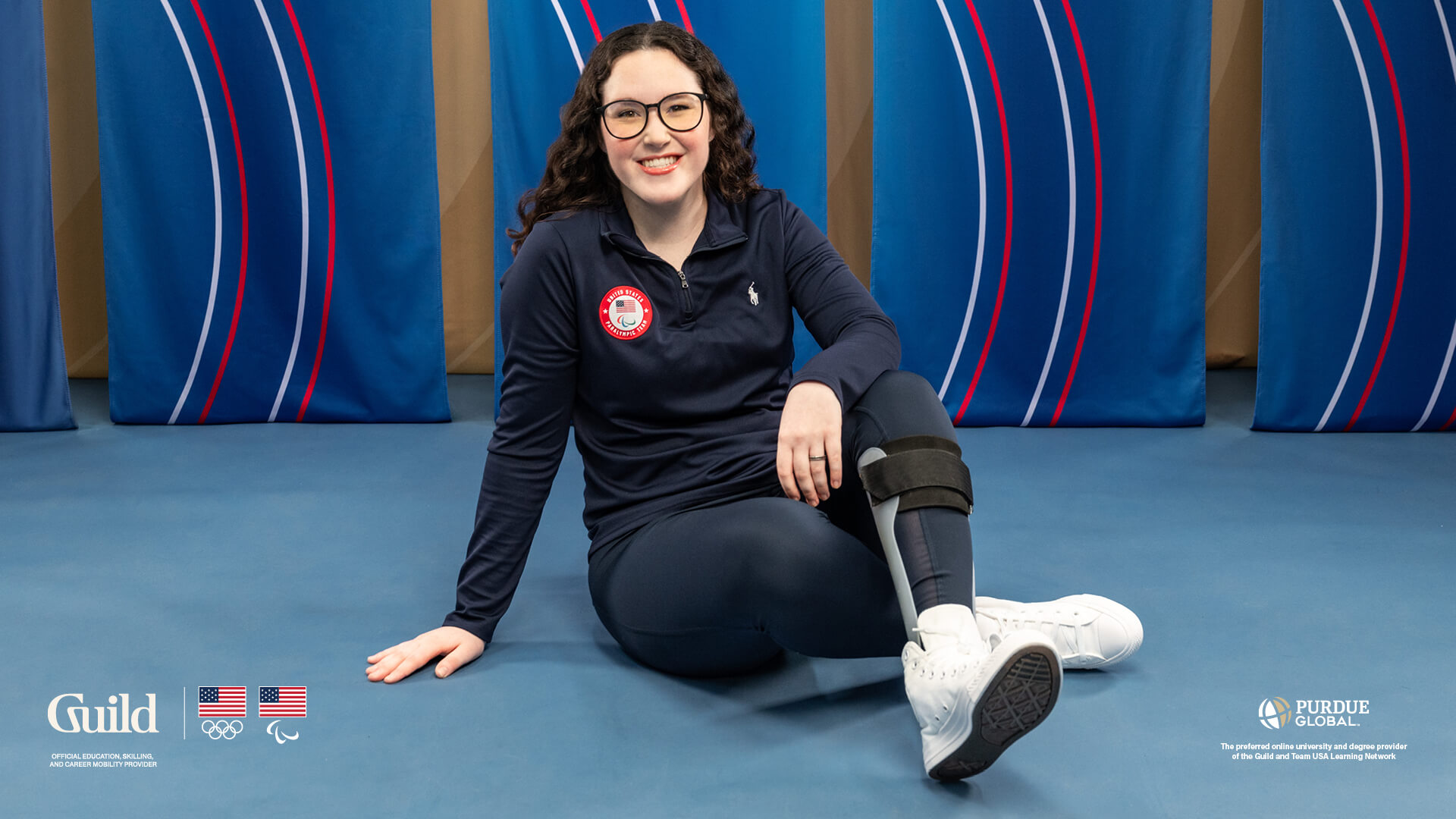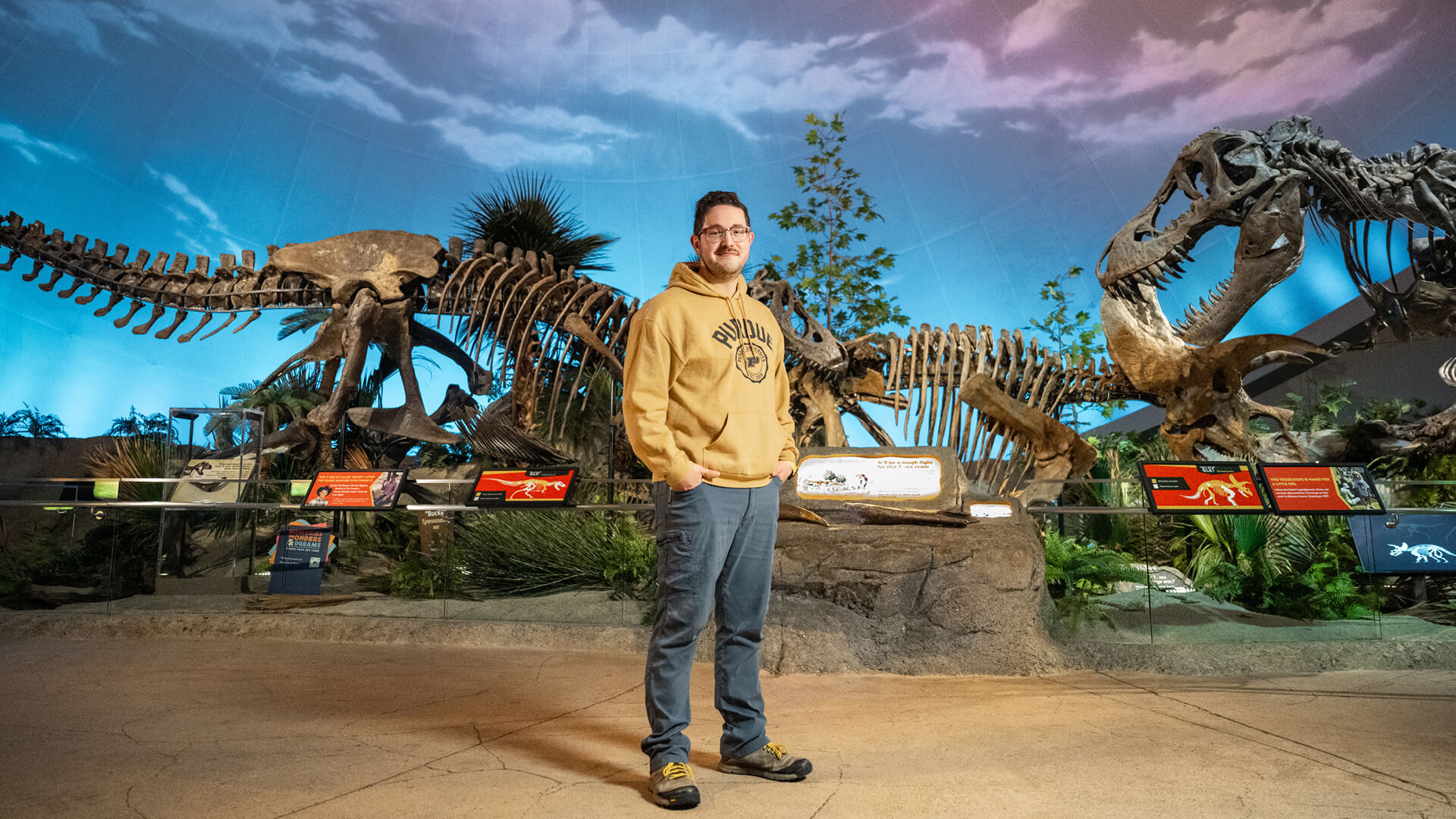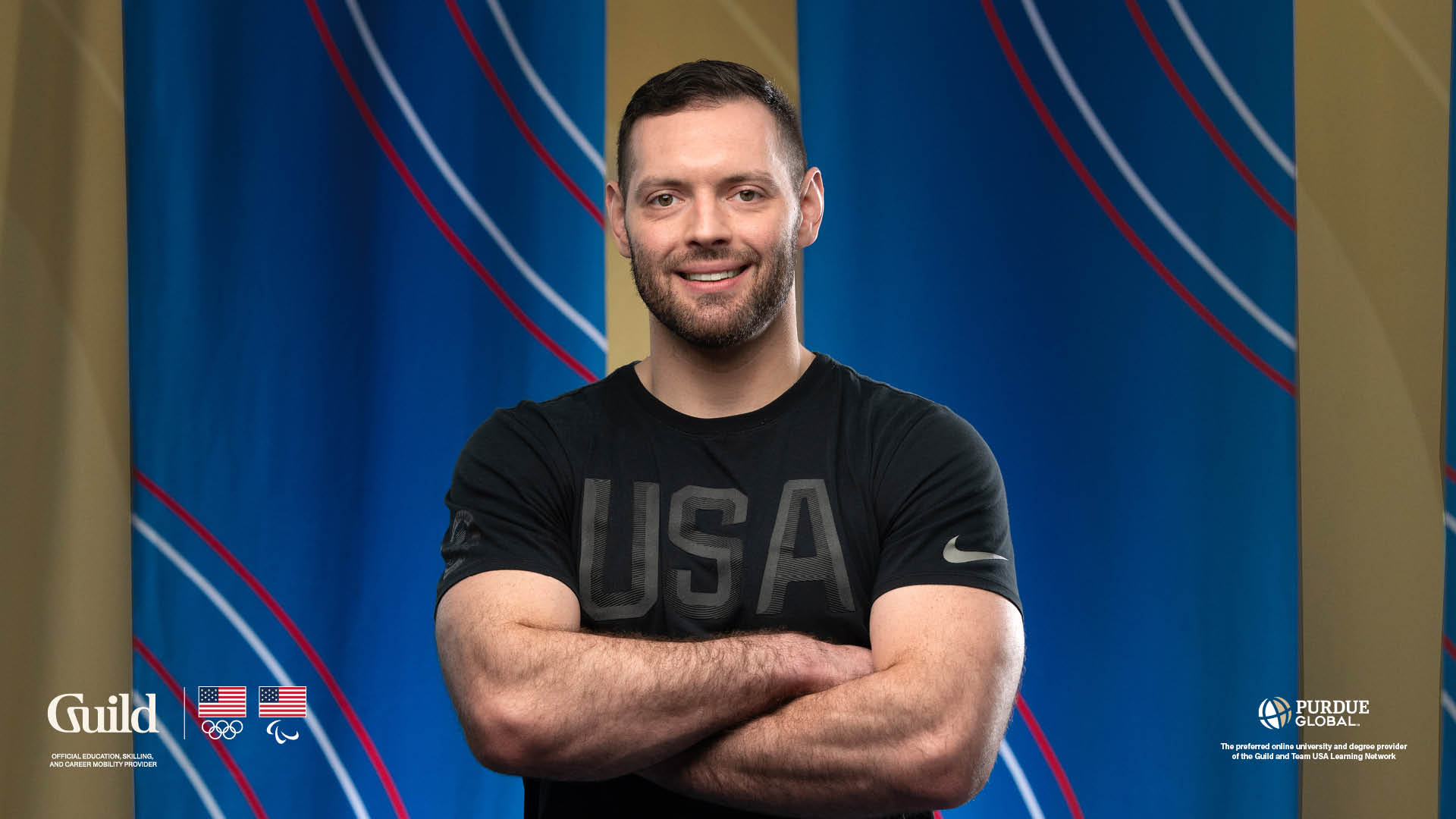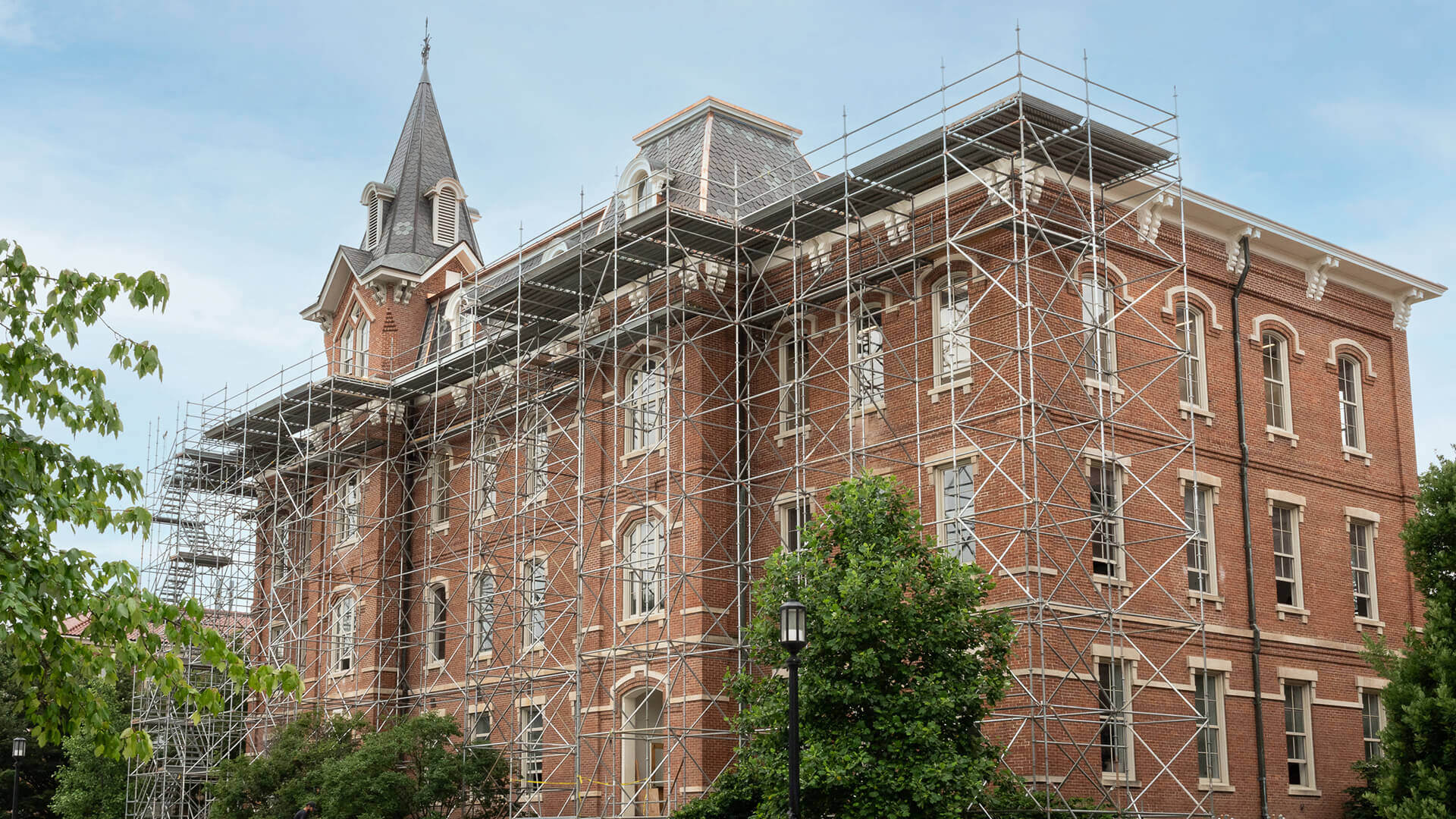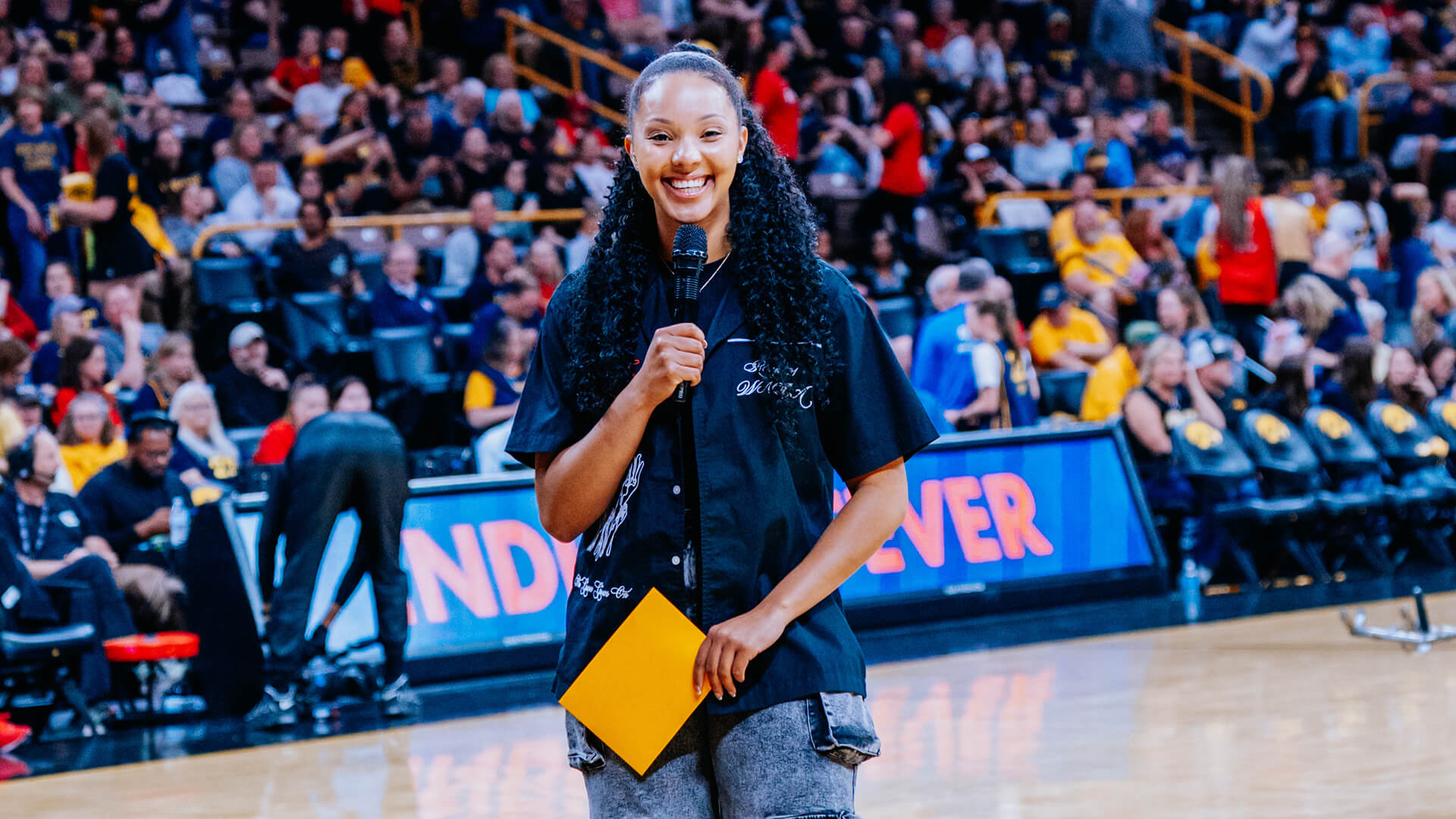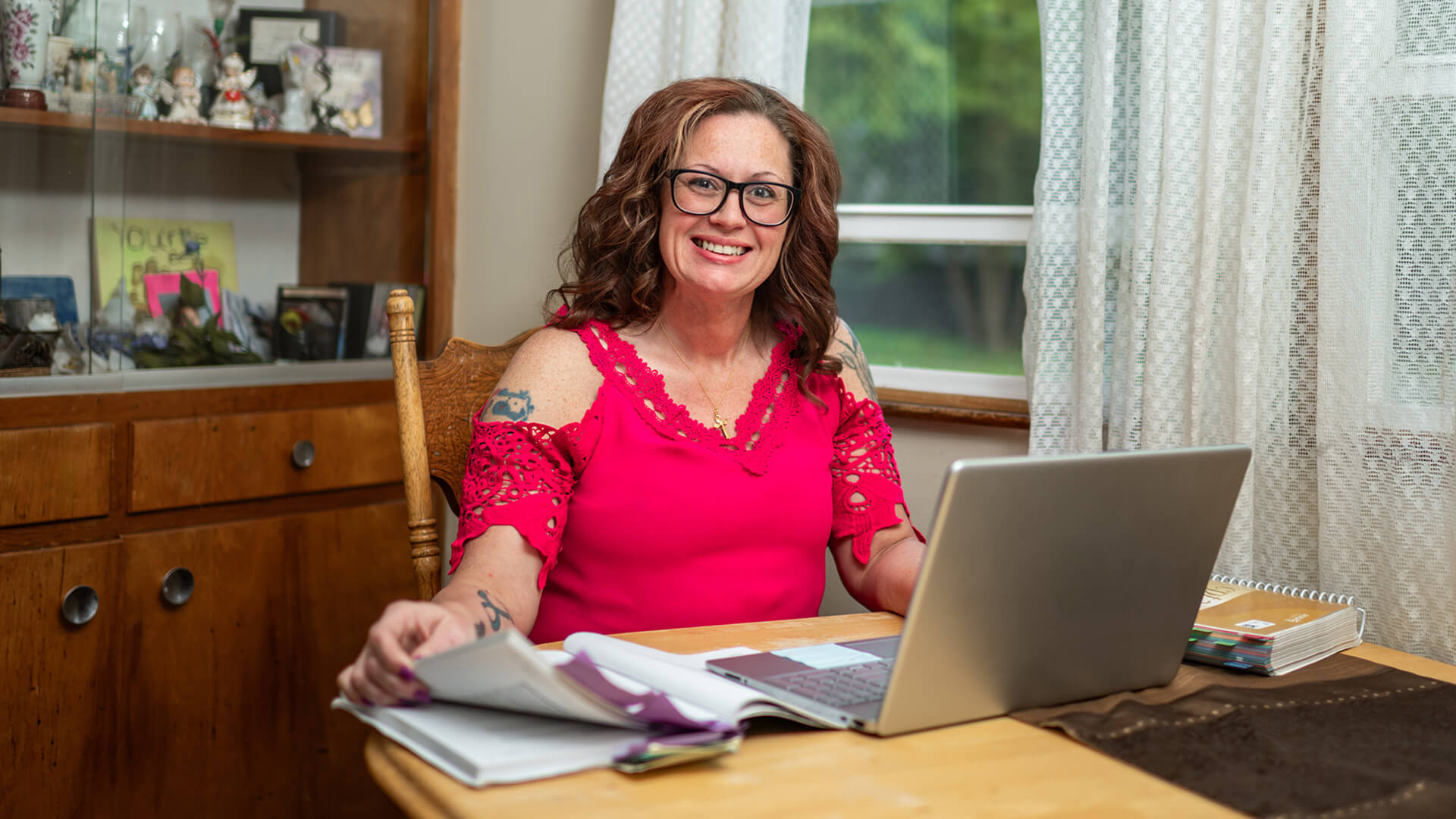Setting up for success at the intersection of technology and finance
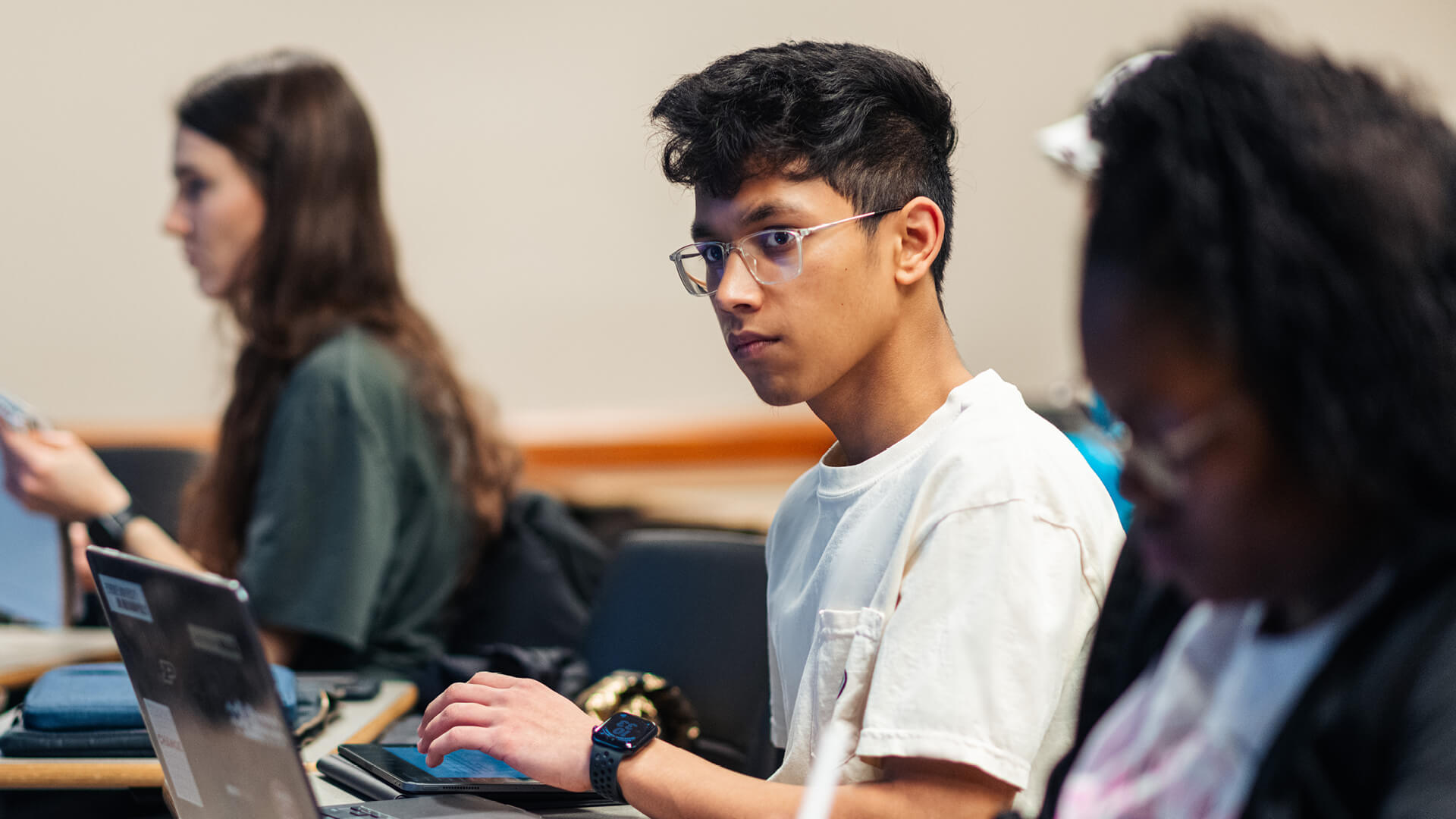
Nikhil Anand Dhoka’s schedule blends computer science and mathematics — this semester, he goes from introduction to statistics to principles of software design. (Purdue University photo/Kelsey Lefever)
Nikhil Anand Dhoka is excelling as a Purdue computer science and mathematics student in Indianapolis
For Nikhil Anand Dhoka, earning an A-plus is not about the grade. It’s about the ability to build skills and train for a world that’s ever evolving.
“I know that things will change so quickly in the roles that I’m in,” says Dhoka, a Purdue computer science and mathematics student in Indianapolis. “It’s why I think it’s important to be adaptable to new possibilities.”
Emerging fields in computer science can be challenging to forecast, but he’s building the abilities he’ll need to succeed now. He’s committed to always learning something new and seeking opportunities, setting the foundation for an exciting career in technology.
Receiving a perfect 100 score on the final exam is a byproduct of the greater motivation at play.
“It’s really not about the grade,” he says. “I know that when I push myself to achieve more, I’m preparing for learning and self-teaching throughout my life.”
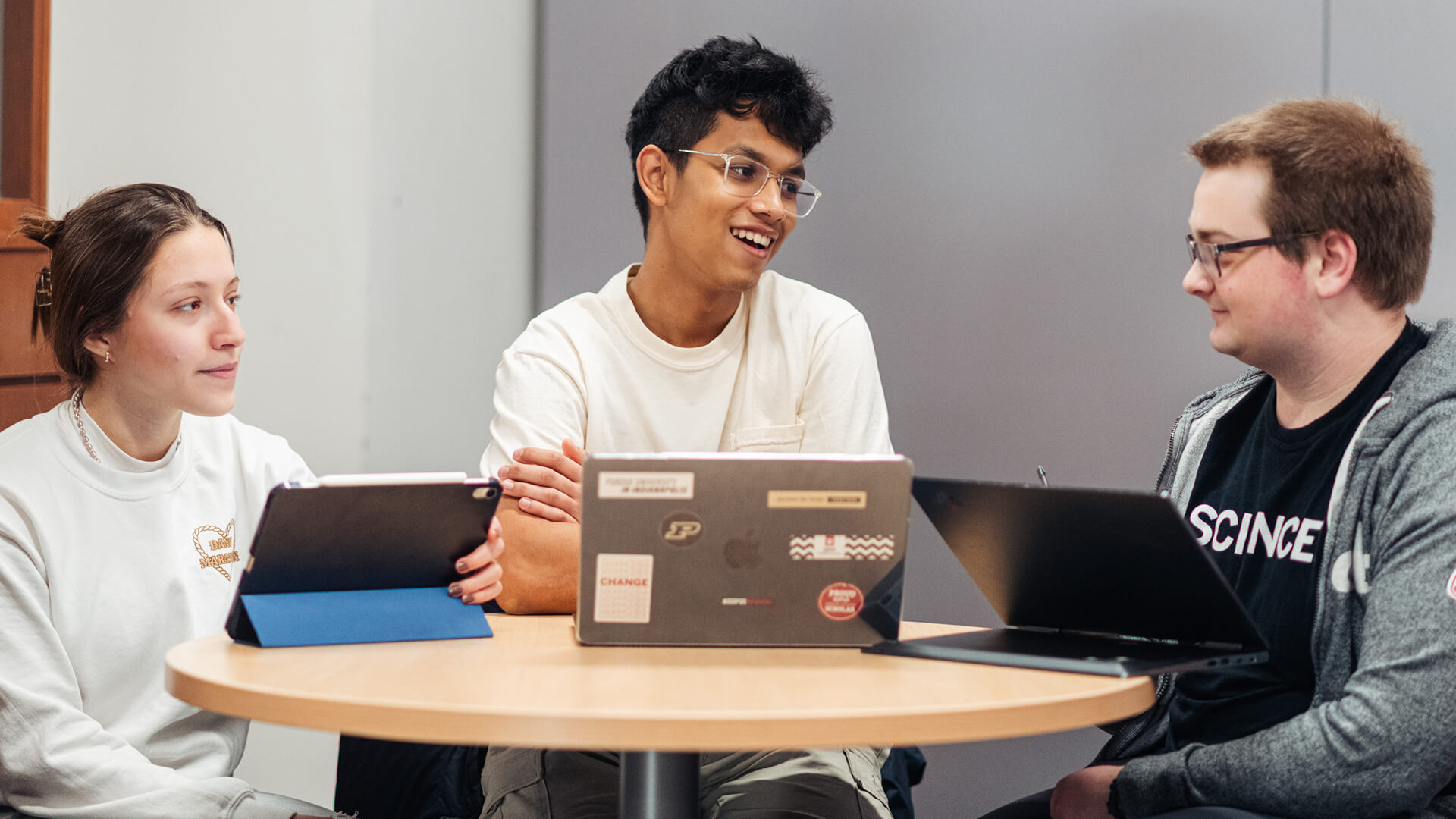
Selecting computer science in Indianapolis
Blending technology and business is the perfect path for Dhoka, who has long-standing interests in each industry.
“I have always been fascinated by technology,” he says. “I remember my first interaction with impressive technology was when my father imported the iPhone 3G around 2008. That was the first time I interacted with a touch-screen mobile phone.”
Ever since, he’s been interested in learning how things work. “I’ve always asked a lot of questions,” he says. “How does technology interact with your fingers? How does it affect your user experience? How can it be better?”
In high school, he became more interested in business and realized that working on the finance side of the technology world would be his most ideal fit. He started searching for universities and came across Purdue.
“Obviously, Purdue stuck out to me,” he says. “It established the first computer science department in the United States. It is consistently ranked as a top program. It made my decision easy.” Coming from Pune, a large city in western India, he was looking for an urban environment that could offer new connections.
“I knew some people that went to Purdue, so I was aware from them that I would be getting an excellent education as well as a vast number of opportunities,” he says. “That was really meaningful and made me choose to go here over other schools.”
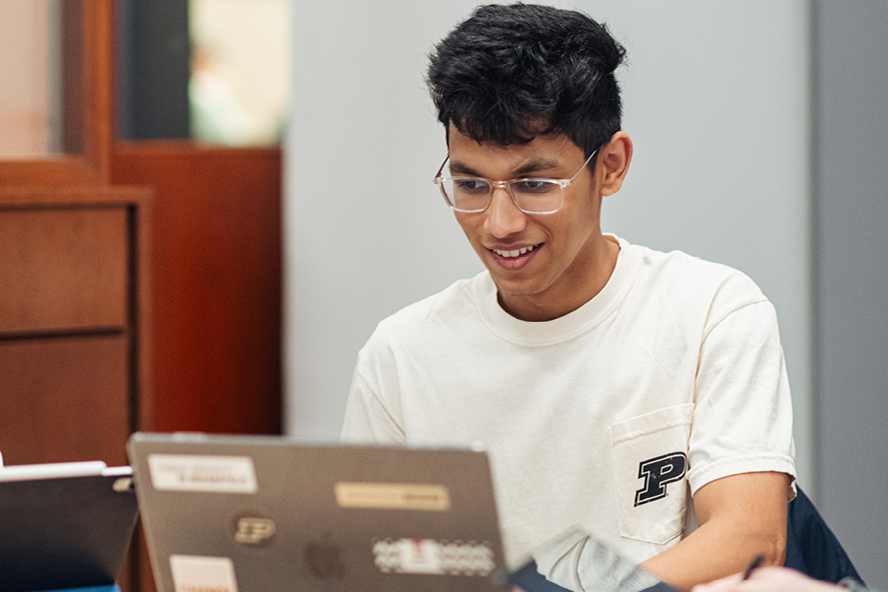
Obviously, Purdue stuck out to me. It established the first computer science department in the United States.
Nikhil Anand Dhoka Purdue computer science student in Indianapolis
Leaning into lifelong learning
A degree in computer science with a minor in mathematics is the result of careful consideration and collaboration with academic advisors.
“I need to understand fundamentals in order to work on the finance side of tech,” Dhoka says. “How is software built? How do products work internally? How can I help make scalable applications? I want a well-rounded understanding.”
Growing up, he learned through resources he sought out himself in his spare time, like watching YouTube videos to find out more about financial markets and banking principles. Now he’s able to collaborate with faculty and students to expand his knowledge.
“Even though I’m only in my second year, I’ve had so many hands-on projects here,” he says. “My professors and teaching assistants have been really helpful in navigating the intricacies that come with these technologies.”
It’s been rewarding to connect learning principles to real-world applications. In one of his courses, he developed a virtual auction house via Java’s object-oriented programming language, which allowed users to log in and experience all of the components of an in-person auction — including an effective timer and responsive bidding system.
Between classes, Dhoka is a software engineering researcher. Last year, he worked with a group of peers and mentors to develop an augmented reality (AR) platform using programming languages and a 3D-printed headset. The platform was designed to provide tutorials for visual and tactile learners. Together, the group explored ways that AR and virtual reality can enhance education.
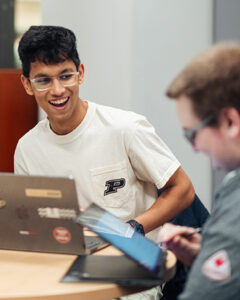
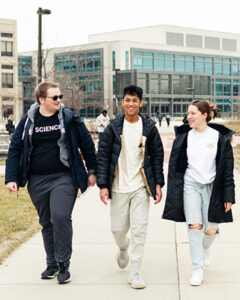
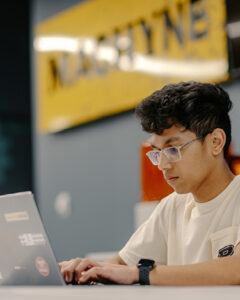
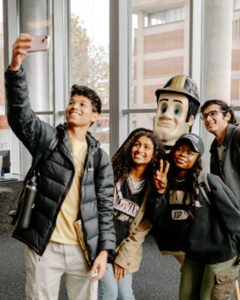

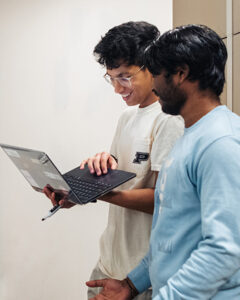
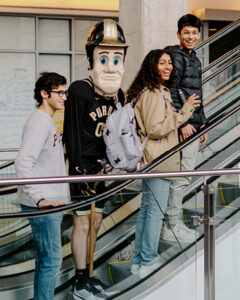
Finding ways to connect
Outside of classes and research, Dhoka has met people through his involvement in student organizations. He finds that much of his schedule is spent on campus, from studying in the Honors College lounge at the library to meeting with the Computer Science Club, where he serves as treasurer.
He’s also the chief technology officer for the undergraduate student government and the graduate and professional student government. Through collaborating with students, faculty and staff, including IT professionals and security experts, he’s able to introduce bills that bring innovative digital tools, platforms and applications to the university.
Everything’s building a base for life after graduation.
Nikhil Anand Dhoka
Purdue computer science student in Indianapolis
Off campus, Dhoka loves living downtown. His favorite part about Indianapolis? The fact that everywhere he turns, he finds a new opportunity. Coming to the university at age 17 was his first time in the U.S., and he’s created a home for himself through networking.
“It’s been amazing,” he says. “If I search something I’m interested in on the internet, there are ways to get involved. If I want to network, there are people not only at school, but around Indy.”
There’s always something to explore. He believes that pushing himself to continually learn and reach out to new people will pay off.
“I’m getting the experience that I came for,” he says. “Everything’s building a base for life after graduation.”
